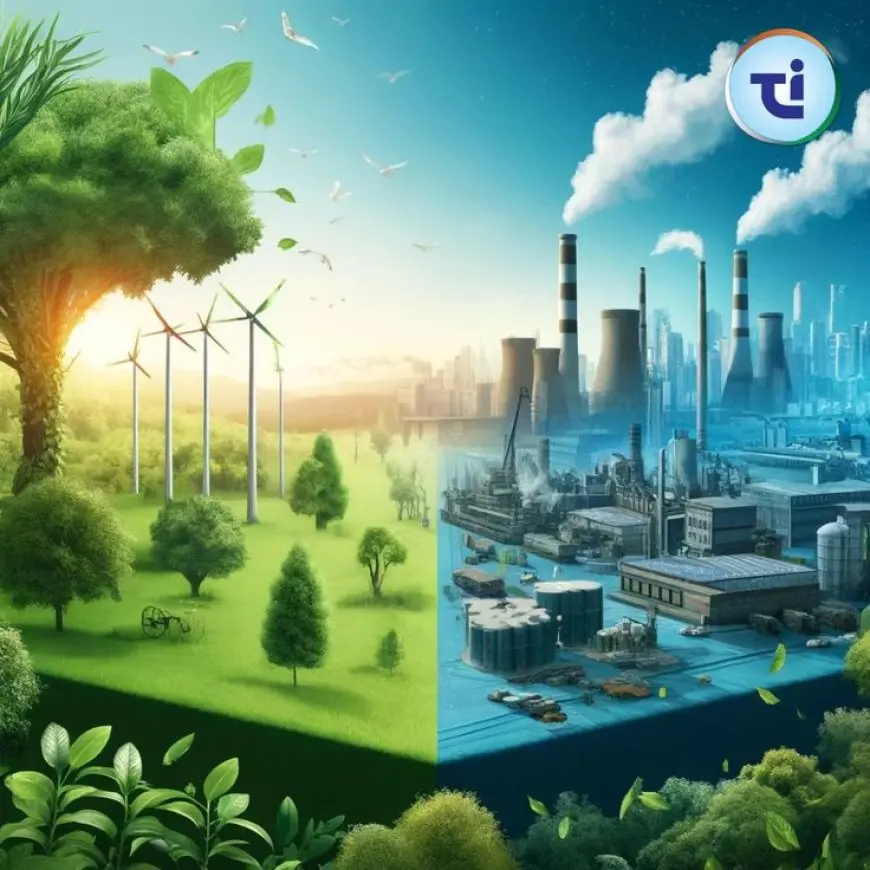How Renewable Energy Can Save the Planet
How Renewable Energy Can Save the Planet

As the world faces the urgent challenges of climate change, pollution, and resource depletion, renewable energy has emerged as a crucial solution to help save the planet. Renewable energy sources, including solar, wind, hydroelectric, and geothermal power, offer an alternative to fossil fuels, which are the main contributors to environmental degradation. By harnessing natural, replenishable resources, renewable energy has the potential to reduce greenhouse gas emissions, promote sustainable development, and safeguard the planet's future.
The Environmental Impact of Fossil Fuels
Fossil fuels such as coal, oil, and natural gas have long been the primary sources of energy worldwide. However, the burning of these fuels releases significant amounts of carbon dioxide (CO2) and other harmful pollutants into the atmosphere. This contributes to the greenhouse effect, which traps heat in the Earth's atmosphere and leads to global warming. The consequences of this warming include rising sea levels, extreme weather events, loss of biodiversity, and disruption of ecosystems.
Additionally, the extraction and transportation of fossil fuels can result in habitat destruction, water pollution, and other environmental hazards. As the global demand for energy continues to rise, reliance on fossil fuels becomes increasingly unsustainable and harmful to the planet.
The Advantages of Renewable Energy
-
Reducing Greenhouse Gas Emissions
One of the most significant benefits of renewable energy is its ability to reduce greenhouse gas emissions. Unlike fossil fuels, renewable energy sources do not emit CO2 or other pollutants during energy production. For instance, solar panels generate electricity by capturing sunlight without releasing harmful gases, and wind turbines convert wind into electricity with no emissions. By shifting to renewable energy, we can significantly reduce our carbon footprint and help mitigate the effects of climate change. -
Sustainability and Abundance
Renewable energy sources are naturally replenished and do not run out. The sun will continue to shine, the wind will keep blowing, and water will keep flowing, making these resources virtually inexhaustible. In contrast, fossil fuels are finite and will eventually be depleted, leading to higher extraction costs and increased environmental damage. Investing in renewable energy ensures a sustainable and reliable energy supply for the future. -
Reducing Air and Water Pollution
The use of fossil fuels for energy production is a major source of air pollution, leading to smog, respiratory diseases, and other health problems. Renewable energy, on the other hand, produces little to no air pollution. Wind and solar energy have zero emissions during operation, and hydropower plants produce clean energy without releasing harmful pollutants into the air. Additionally, renewable energy sources generally have a smaller water footprint compared to fossil fuel extraction, which often requires large amounts of water for cooling or hydraulic fracturing. -
Promoting Energy Independence
By investing in renewable energy, countries can reduce their reliance on imported fossil fuels, which are often subject to price volatility and geopolitical tensions. Renewable energy sources, such as solar and wind, are abundant in many parts of the world, allowing countries to generate their own clean energy locally. This not only enhances national energy security but also supports local economies by creating jobs in the renewable energy sector. -
Job Creation and Economic Growth
The transition to renewable energy presents significant economic opportunities. The renewable energy sector is labor-intensive, meaning it creates a large number of jobs in manufacturing, installation, operation, and maintenance. According to the International Renewable Energy Agency (IRENA), the renewable energy sector already employs millions of people globally, and this number is expected to grow as more countries invest in clean energy. This job creation can help stimulate economic growth, reduce unemployment, and foster innovation. -
Reducing Climate Change Impacts
By reducing greenhouse gas emissions, renewable energy plays a key role in limiting the global temperature rise. Scientists agree that keeping global warming well below 2°C, ideally 1.5°C, is crucial to avoid the worst impacts of climate change, such as extreme heatwaves, flooding, and droughts. Transitioning to renewable energy is essential to meet these targets and prevent catastrophic environmental damage. -
Local and Distributed Energy Production
Renewable energy allows for decentralized energy production. Solar panels can be installed on rooftops, wind turbines can be placed on farms or in coastal areas, and small hydropower plants can provide electricity to remote communities. This localized energy production reduces the need for long-distance transmission lines, which can be costly and inefficient. It also ensures that energy is more accessible, particularly in rural or underserved areas.
The Challenges of Transitioning to Renewable Energy
While the benefits of renewable energy are clear, there are challenges to overcome in transitioning from fossil fuels to clean energy. One of the main obstacles is the need for large-scale infrastructure investment. Building wind farms, solar power plants, and energy storage systems requires significant upfront costs. However, these investments often pay off in the long run through reduced operating costs and environmental benefits.
Another challenge is the intermittent nature of some renewable energy sources, such as solar and wind. The availability of sunlight and wind can vary depending on location and time of day. To address this, advancements in energy storage technologies, such as batteries, are crucial to ensure a stable energy supply even when renewable resources are not available.
Renewable energy is key to solving the global environmental crisis. By reducing reliance on fossil fuels, renewable energy can help mitigate climate change, protect ecosystems, and improve human health. The transition to renewable energy is not only an environmental necessity but also an economic opportunity. As technology advances and more investments are made in clean energy infrastructure, the world can move toward a sustainable and thriving future, where energy is clean, abundant, and accessible for all.







